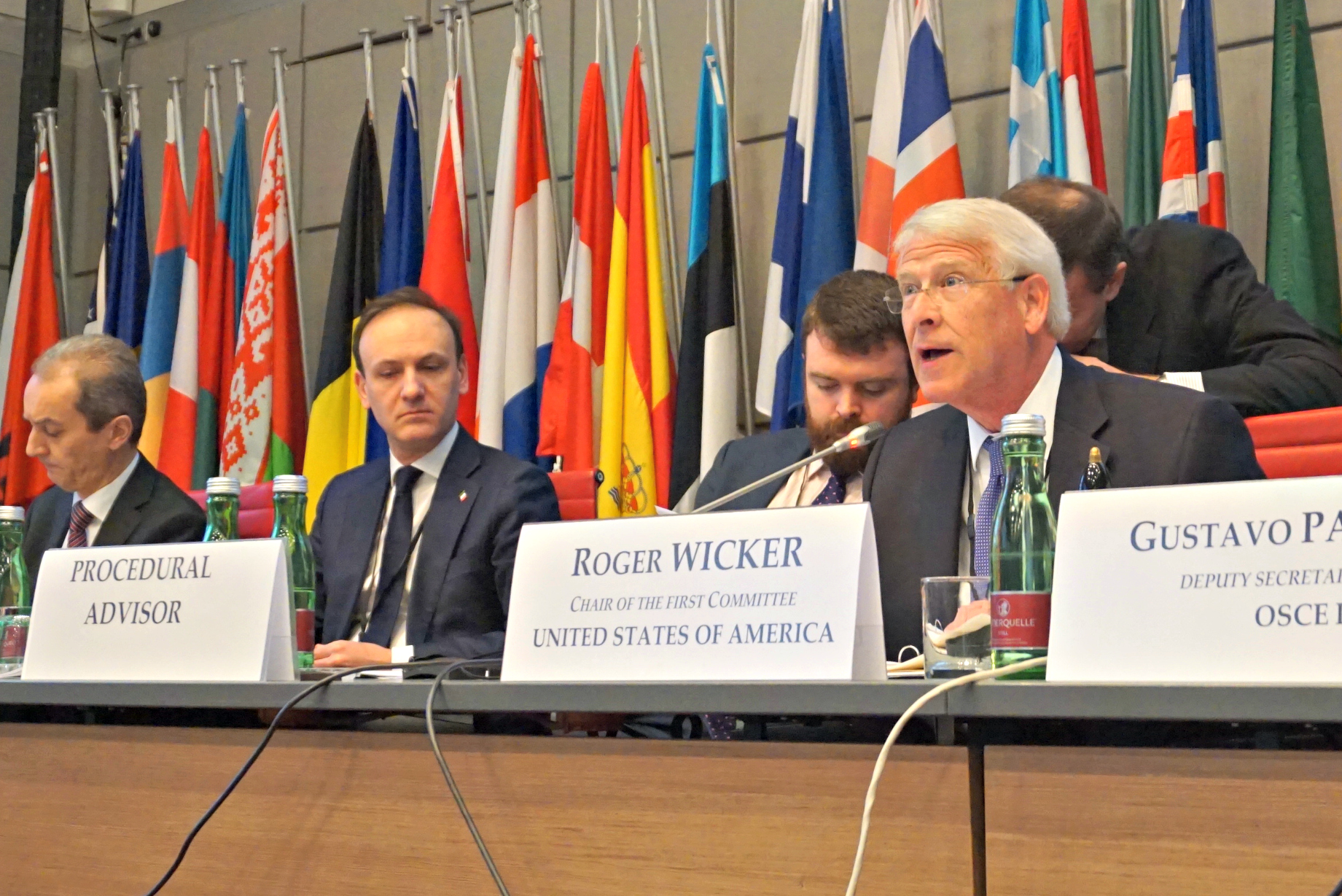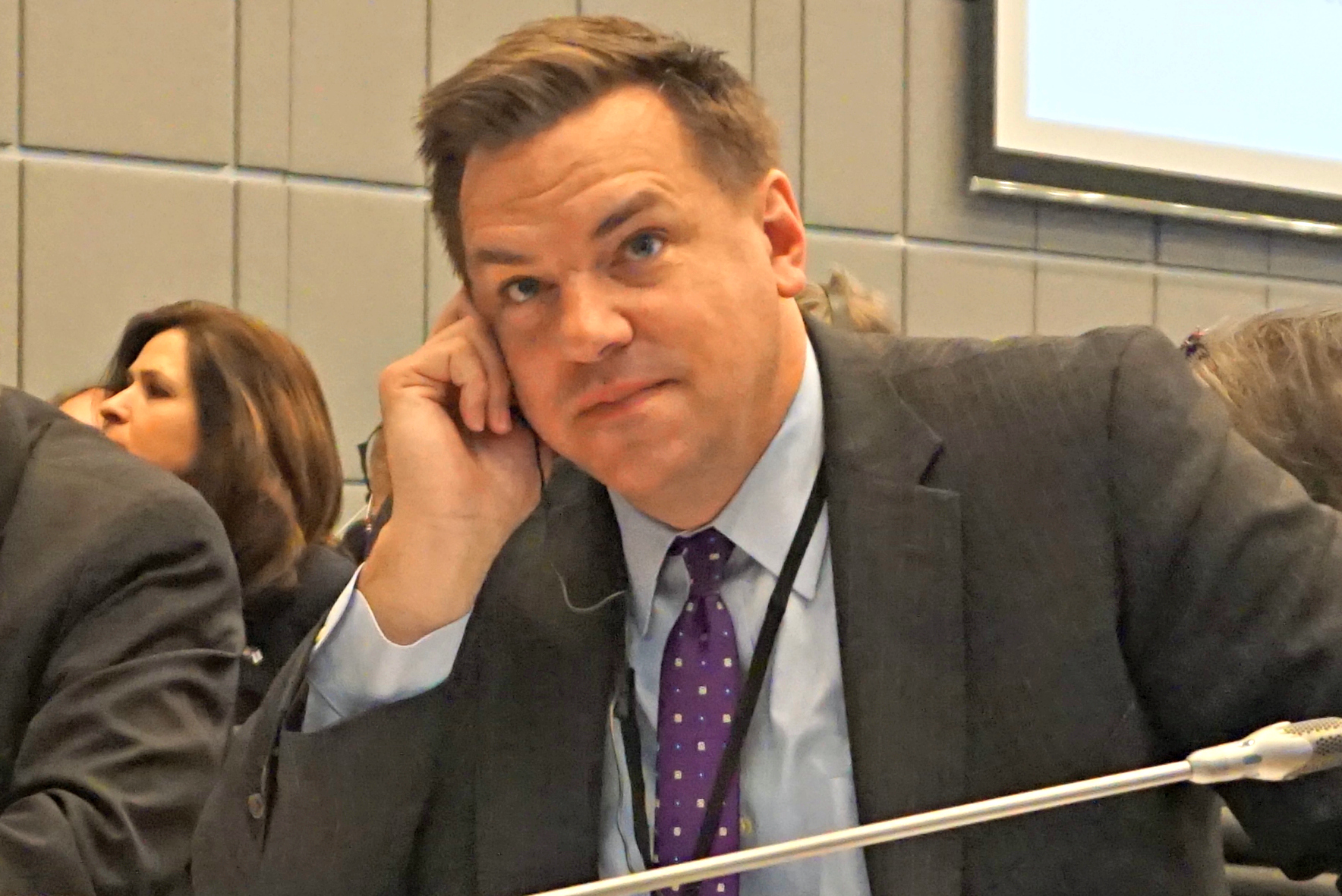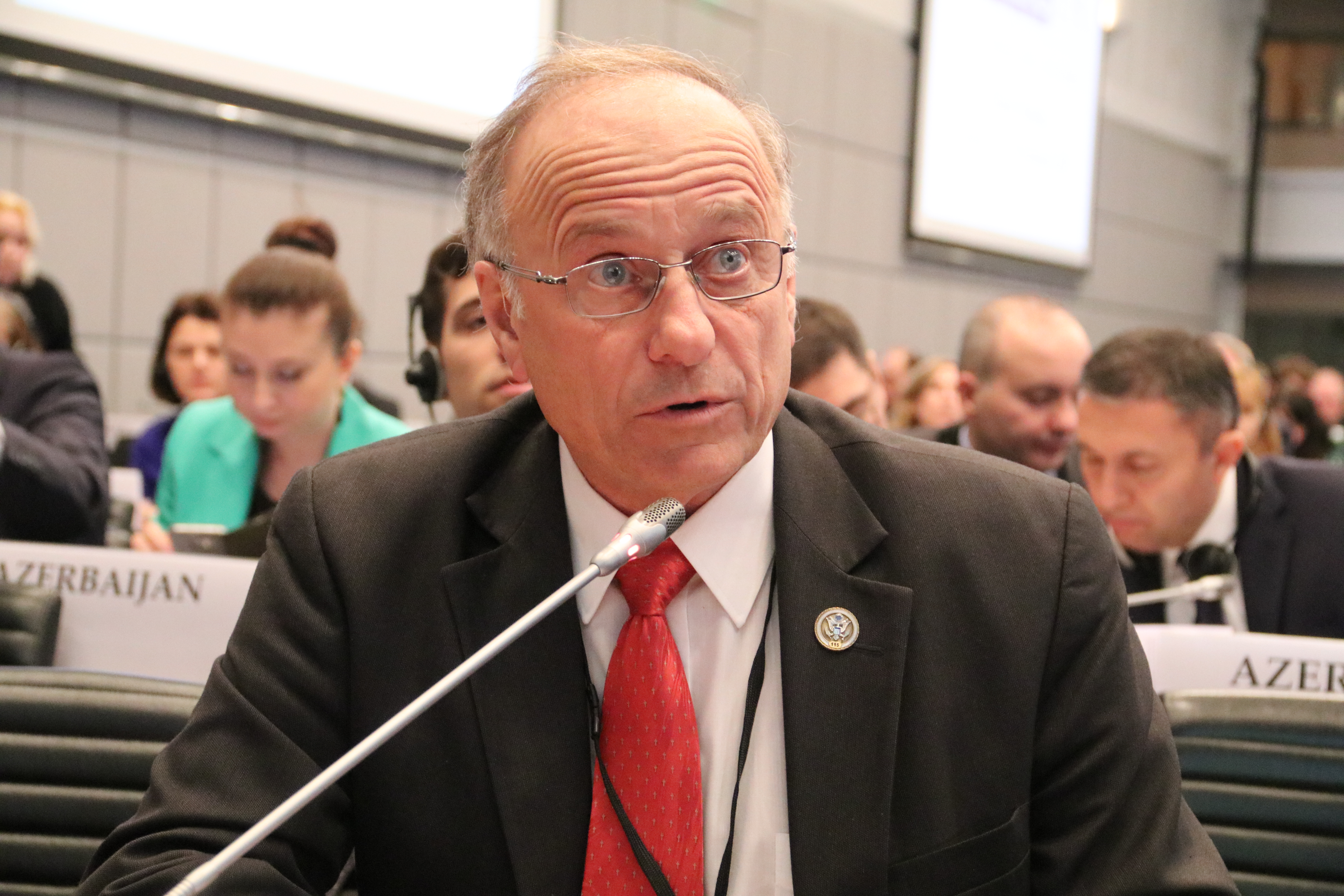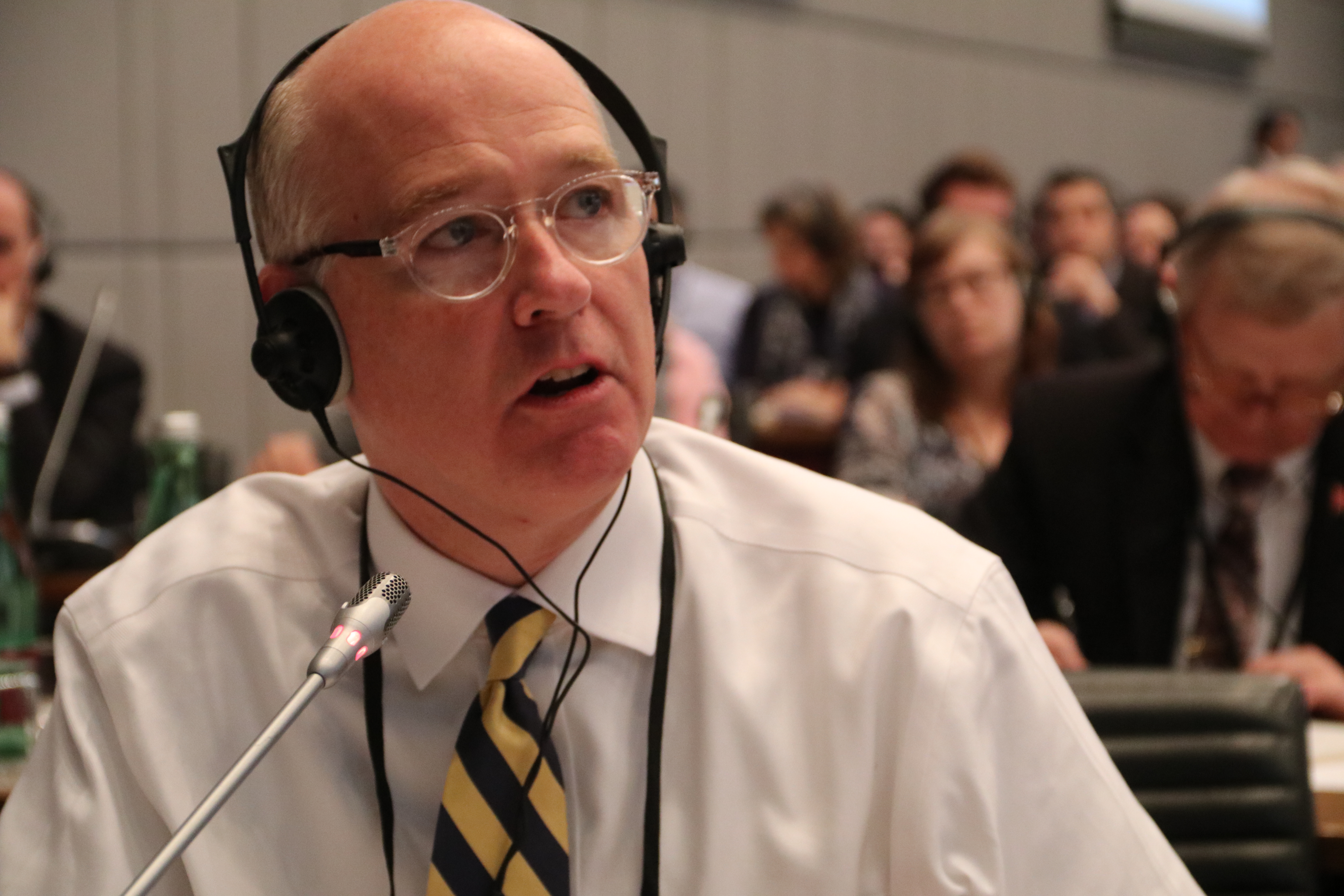Led by Helsinki Commission Chairman Senator Roger F. Wicker (MS), 10 Members of the U.S. Congress joined the OSCE Parliamentary Assembly’s annual Winter Meeting in Vienna, Austria, on February 23 and 24, 2017.
Since the founding of the OSCE PA, Members of Congress have actively engaged their Canadian, European, and Central Asian counterparts at Winter Meetings and other OSCE PA events. Such engagement was particularly significant in 2017 in the context of an ongoing terrorist threat in Europe, Russian aggression against Ukraine and other neighboring countries, and the challenges of the massive influx of refugees and migrants into Europe from the Middle East and Africa. The transition to a new Administration in the United States made it more important than ever to reaffirm the commitment of the United States to security and cooperation in the region.
Approximately 250 parliamentarians from 53 participating States took part in the 2017 Winter Meeting, and active participation of the U.S. Delegation – the largest in OSCE PA Winter Meeting history – was warmly welcomed. In addition to Senator Wicker, the U.S. Delegation included Helsinki Commissioners Rep. Alcee L. Hastings (FL-20), Rep. Robert B. Aderholt (AL-04), Rep. Steve Cohen (TN-09), and Rep. Richard Hudson (NC-08), as well as Senator Lamar Alexander (TN), Rep. Eliot L. Engel (NY-16), Rep. Lloyd Doggett (TX-35), Rep. Steve King (IA-04), and Rep. Trent Kelley (MS-01).
U.S. Delegation Speaks Out on Security, Religious Freedom, and Human Rights in Times of Crisis
The bicameral, bipartisan Delegation was highly visible throughout the meeting. In addition to his role as Head of the U.S. Delegation in 2017, Senator Wicker serves as chairman of the Assembly’s General Committee on Political Affairs and Security (also known as the First Committee), which met during the Winter Meeting.
Opening the committee session, Senator Wicker applauded the opportunity the Winter Meeting provides “to dialogue directly with senior officials working within the OSCE” and “to discuss pressing concerns with the Ambassadors representing all of our States on a continuing basis.”
“This dialogue,” he added, “is one way in which we, as representatives of our citizens, help to shape the future of the OSCE… The role of this Committee remains as important as at any time in the history of our Assembly. Let us now get down to the work of discussing how we will collectively rise to the challenges of our time.”
Representative Hudson participated in the First Committee’s debate on confronting terrorism. Observing that some countries misuse laws regarding extremism and terrorism to persecute an entire religious community, Hudson agreed that “violent extremism and terrorism – including in the name of religion – are real threats that must be countered,” but argued that “religious affiliation itself is never a justification for detention and imprisonment.”
As some governments have been accused in recent years of using outside threats and security concerns as justification for the denial of basic human rights to political opponents, “protecting human rights in a time of crisis” was chosen as a relevant and timely topic for the closing plenary debate.
At the closing plenary, Representative King noted the magnitude and gravity of the threats Turkey faces today, including ISIS- and extreme Kurdish-sponsored terrorism as well as an attempted military coup. He added, however, that the response must respect core obligations and should not be broadened into a crackdown on political rivals, independent voices and average citizens.
Representative Aderholt, who also serves as one of nine Vice Presidents of the OSCE PA, remarked on contrasting developments in another country facing a crisis: Ukraine. He noted that the threat posed by Russian aggression since 2014 “could easily have led to a deterioration in Ukraine’s human rights situation, as well as increased corruption and societal intolerance,” but that, “to Ukraine’s credit, this has not happened.” 
He reminded delegates of the difficult and substantial reforms the country has undertaken in recent years and encouraged their implementation. He also detailed the “contrasting deterioration in the human rights of those parts of Ukraine which have been seized by Russia and its separatist proxies.”
Beyond the Debates
Chairman Wicker also represented the United States in a session which amended the Assembly’s rules of procedure to encourage greater discipline to avoid over-amending draft resolutions at Annual Sessions which take place each summer, and to ensure that those resolutions are placed on the agenda based on the degree of support they get from heads of delegation.
While in Vienna, the U.S. Delegation hosted two additional events to facilitate an exchange of views: one for 15 of the Parliamentary Assembly’s leaders and heads of delegation, including Austrian parliamentarian and current President Christine Muttonen; and a second for senior OSCE officials. Bilateral talks with the delegates from Georgia, Israel, Poland, Romania, and Russia took place on the margins of the meeting.
The next gathering of the OSCE Parliamentary Assembly will be its Annual Session, scheduled to take place in Minsk, Belarus, on July 5-9, 2017.
About the OSCE PA Winter Meeting
The Parliamentary Assembly was formed as the Cold War ended in the early 1990s to allow elected representatives to take a more active role in the multilateral diplomacy of what is today the Organization for Security and Cooperation in Europe (OSCE). Winter Meetings initiate the Assembly’s work for the coming year and debate current issues. Unlike other Assembly meetings, Winter Meetings always take place in Vienna to facilitate greater interaction between the parliamentarians and both OSCE officials and diplomatic representatives of the 57 OSCE participating States.




